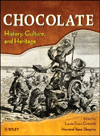Africa is the largest cocoa producing region in the world. Jo Thys, VP Cocoa Africa at Barry Callebaut, explains how he and his team ensured the continued sourcing and processing of cocoa, whilst prioritizing the safety of employees and following the precautionary measures introduced by the government.
Jo, can you describe what business continuity looks like in Africa during COVID-19? What were your first priorities?
Our first consideration was the safety of our people, and we had to address this in a rapidly changing situation. Our care also extended beyond our own employees, to outsourced services, such as our security teams and workers from trucking companies who deliver for us.
Alternative working arrangements, such as home office, meant ensuring that all those who had to suddenly work from home, could do so. To address this we needed to procure adequate resources such as laptops, smartphones and data bundles for our people to enable a smooth transition from the workplace to home office.
The response from government directives on COVID-19 differed across countries in Region Africa. For example, in Côte d'Ivoire there was a curfew commencing at 9pm and ending at 5am, so we had to address the big question—how do we keep sites and factories running as normal? The first step was to reconstitute the shifts to work around the curfew. So our shift and factory colleagues worked together to organize a totally different shift structure, two shifts of twelve hours, without any impact on the output of the factory.
You mention the immediate challenges, were there examples of creative issue management measures you put into place?
In terms of social distancing, it is relatively easy to do this on-site, but public transport in Africa, typically buses, are exceptionally packed. So you can imagine that it is more of a complex problem to maintain social distancing. Therefore we decided to rent buses to specifically pick up our people to take them to and from their homes to sites in a safe way.
In Ghana, cities such as Accra, Tema and Kumasi were locked down, and we had the situation where key workers, such as our QA colleagues, could not travel from their homes in Accra to Tema. To address this, we took the decision to rent an entire guest house, near our factory in Tema to allow our people stay there safely. Some of our colleagues have been living there for over 3 weeks now.
What is the situation with cocoa sourcing and the delivery of cocoa—is it ‘business as usual’?
In terms of cocoa farming, cocoa has not stopped growing, despite COVID-19. So the cocoa is indeed still flowing and we are still purchasing. Our common aim, however, is to support farmer livelihoods and communities, and second, continuing our sourcing business as usual, without contaminating up-country operations.
In general, there is less traffic passing through cocoa growing communities. Less traffic means there is less cash being injected, restaurants and shops are not open. So our teams on the ground have been working very hard to support farmer communities in Côte d'Ivoire, Ghana, Cameroon, Nigeria and Tanzania. For example, we have been buying locally made soap from communities which has provided additional income to farming communities, we have donated hand washing equipment, protective masks, sanitizer kits and partnered with our customers and local government on sensitization activities of COVID-19 preventive measures and hygiene activities.
We have also distributed food parcels to needy families, and this includes families in the communities in which we work and live in. In Ghana, for example, we donated food parcels to support around 500 families living near our factory.
Has there been any silver linings during COVID-19?
What I felt during this period was the entire Region Africa team coming closer together. Our people are really passionate about supporting the operations during COVID-19, of adapting to how they work, adjusting to different shift patterns or staying in alternative accommodation close to our sites.
The creativity and ingenuity of our people has also shone at this time. The additional washing facilities at our sites, these were hand made. I also saw how the communications evolved during this time. As the situation unfolded, communication was critical to informing our people and for maintaining business continuity. Our issue teams who met every day, discovered that actually the best way to communicate was not via email or notice boards in our sites, but by creating team Google Hangout groups or via text messaging to keep everyone up to date on a timely basis.
We also had a visit from one of the medical officers who is a member of the advisory team working with the Ghanaian government on COVID-19 situation. She reviewed the interventions that we had put in place to support our people and the feedback that we received was that they were so impressed with what we had done—that we could transport our people, provide accommodation to our people, to keep them safe. This is something we can be very proud of.










